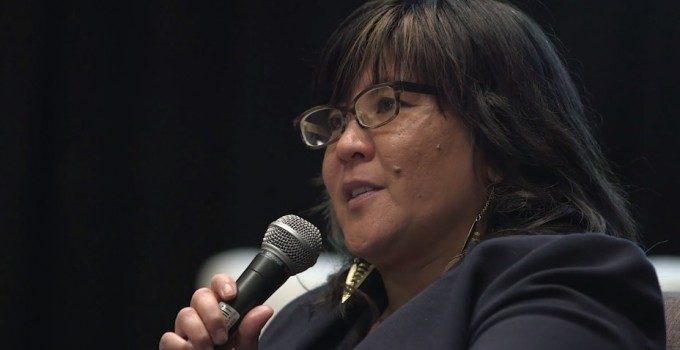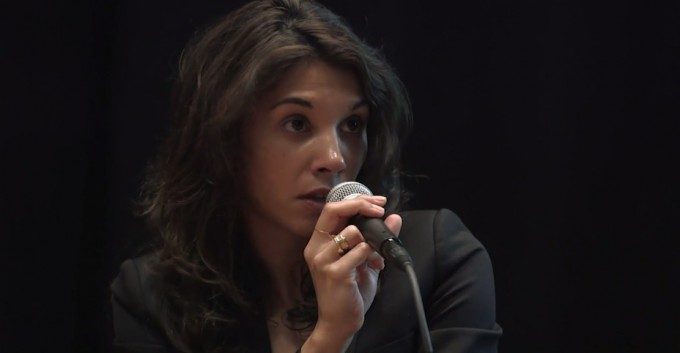Virtual reality filmmaking is in its infancy but one Brendan McCourt reports from the Hot Docs Festival in Toronto where virtual reality as a documentary filmmaker platform was on trial. Can VR really become the “empathy machine” some are claiming? Or might its immersive properties become the enemy of transparency?
 Brendan McCourt is an award winning producer and director of Newred TV, developing content across a range of platforms for global audiences.
Brendan McCourt is an award winning producer and director of Newred TV, developing content across a range of platforms for global audiences.
The future of VR could mean ‘total control of people where they don’t know what is real and what is virtual’ claimed Ana Serrano , the Canadian Film Centre’s Chief Digital Officer at the Hot Docs festival in Toronto recently where she debated the motion ‘VR on Trial’ with Google’s Principal Filmmaker Jessica Brillhart.

Flying the flag for Open Source VR, Serrano also questioned whether VR could work in documentary. ‘Presence does not equal truth’, she maintained. “VR mimics real life. That butts up against documentary, which unpacks reality and points of view.”
Brillhart rose to the challenge: “Film is like a compressed atom. “VR is like an atom exploding” Presence to me is ‘I’m there and I believe I’m there. It’s different. Cinema had 100 years. We’re just at the beginning. We’re experimenting.” Both agreed that documentary filmmakers and the VR industry need to have a dialogue, sooner rather than later.
But are audiences ready to sit through a 60 minute documentary or a 90 minute feature film? Talking together afterwards, Brillhart and Serrano feel there is some way to go:
Brillhart: “The original films were like a minute, two minutes long. They weren’t very long films at all. So I think at the beginning of an experimentation it makes sense to kind of make them quite quick things. The language and the craft start to really come through.”

Serrano: “ I think one of the big limitations is the headsets and the experience. It is not fully baked yet for one to fully want to just immerse yourself in it for a very long time. We’ll see what happens once Netflix films become more ubiquitous on VR headsets.”
Brillhart felt there were exciting new ways to bring content to viewers:” Mixed media stuff is really interesting, as opposed to seeing just one frame of archive. If you imagine being in a hall way of a building with photos, I think it would be really interesting. Different ways of showcasing that content around you.“

Serrano agreed: There are lots of journalistic pieces not necessarily documentary pieces that are playing around with factor images and CG embedded in films and things like that. So in fact, I would say information visualisation type stuff in documentaries that need to really make people understand sophisticated concepts, probably lend themselves best in VR because those things you can construct in a more immersive fashion.”
Both see the future of documentary filmmaking in VR somewhat differently:
Serrano: “The future we want to get to , is one where I am in control of how much virtuality seeps into my reality and so this is where I am determining, what is it going to be – a bit of AR? a bit of mixed reality and all the way to escapist VR? It is about crafting a future, where we thoughtfully figure out the different context for how much of virtual comes into real.
Brillhart: “I think narrative and traditional story telling is potentially harmful to VR and it kind of puts us in a place. It is a good framework, but it shouldn’t be the thing that we try to go towards, skip all the cool stuff that is actually happening that can help inform better stuff and maybe that is narrative and maybe that is something else. So I think that is something we are ready to explore on a number of levels.”






